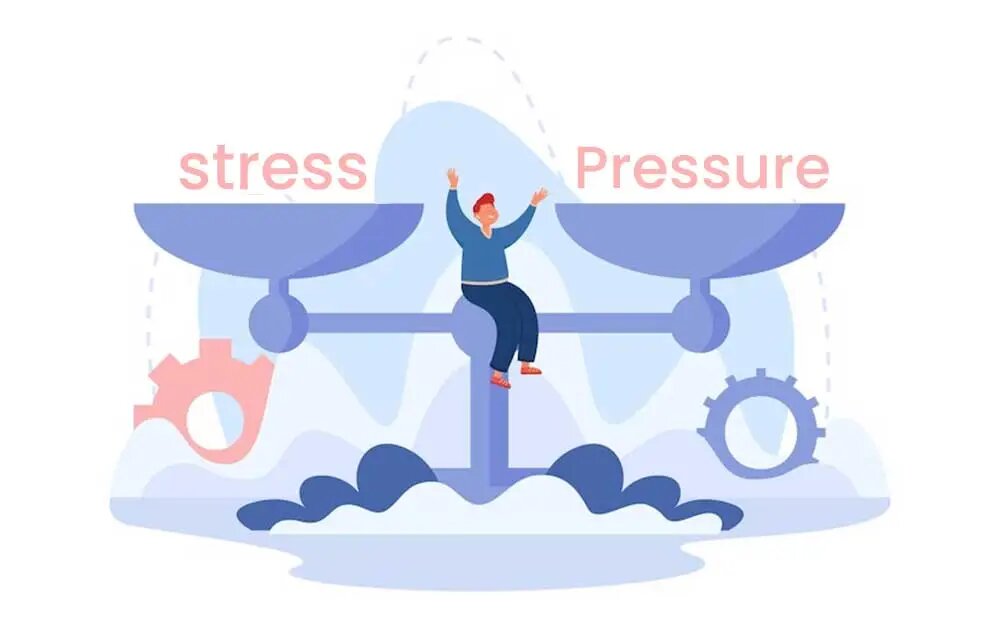Career Tips
Interview Question: “How Do You Handle Stress (Pressure)?” Answers

A lot of jobs are difficult, so be prepared to address concerns about workplace stress during interviews. “How do you handle stress?” or “How do you handle pressure” is a typical interview question.
Because the interviewer does not want to hear that you are never stressed, you must be prepared to reply correctly. After all, everyone experiences workplace stress at some point.
What the Interviewer Wants To Know
The interviewer wants to know how you handle work-related stress. This is crucial if you’re interviewing for a stressful job. Stress can affect working performance.1
The recruiting manager may also wonder if personal stress affects job performance. Employers want candidates who can handle emotional and work-related stress.
How To Answer “How Do You Handle Stress?”
To properly answer this question, you should share specific examples of how you’ve handled stress in the past. You might also give examples of times when being under pressure caused you to perform more efficiently.
Be careful how you respond. If you say you get stressed when you’re given multiple projects, and you know the job will require you to juggle many assignments at once, you’ll look like you’re not a good fit for the position.
Consider mentioning how a little stress can be a helpful motivator for you. Try to provide an example of a time when the stress of a difficult project helped you be a more creative and productive worker.
Examples of the Best Answers
Review these sample answers of how candidates cope with stress, along with information on why these are strong responses.
Example Answer #1
I value pressure. Good pressure—like multiple assignments or a deadline—keeps me motivated and productive. Yes, excessive pressure can cause stress. I don’t get anxious because I’m good at juggling projects and meeting deadlines. I had three big tasks due in one week, which was stressful. I finished all three projects early and avoided stress by creating a timetable that broke down each project into manageable assignments.
Why It Works: This answer shows that the candidate enjoys working under pressure and thrives in stressful situations.
Example Answer #2
I try to respond to situations, not stress. So I can handle the situation without stress. I focus on the task rather than my stress when dealing with an unhappy customer. I think communicating with clients during these times reduces my stress. It minimizes consumer tension, too.
Why It Works: With this response, the candidate shows how they turn stress into action—and into a positive instead of a negative—in order to accomplish their tasks.
Example Answer #3
I operate better under pressure and appreciate tough job. I thrive on deadlines and various assignments as a writer and editor. I’m most creative under deadlines. My recent article, which received a regional writing prize, was assigned to me days before the deadline. That deadline fueled my creativity and focus.
Why It Works: This response works well because the candidate shows that they enjoy working under pressure and that they can meet deadlines.
Example Answer #4
I’m quite aware of group dynamics. I can feel team stress if it’s too high. I listen to others’ worries and check in often to see whether they’re stressed. If so, I think about how I might aid them with their workload to reduce team stress. I enjoy team success.
Why It Works: For someone interviewing for a management role, this answer shows that the candidate is concerned about the stress levels of the team and how they work to provide a solution.
Tips for Giving the Best Response
Show the employer your stress management. Thus, the interviewer can gauge your stress tolerance. Explain how you handled a challenging task or numerous tasks.
Target success. Share instances of how you overcame stress or solved the problem in your response.
When it is a stressful job. Stressful jobs exist. If you’re applying for a high-stress job, let the interviewer know you’re used to stress.
What Not To Say
Don’t mention an issue you created. Avoid mentioning a time when you put yourself in a needlessly stressful situation. You don’t want to come across as someone who causes workplace stress.
Don’t say that you were really stressed. You shouldn’t focus too much on how stressed you felt. While you should certainly admit that stress happens, try to emphasize how you dealt with the stress rather than how much it bothered you.
Possible Follow-Up Questions
- What type of work environment do you prefer?
- Describe a time when your workload was heavy and how you handled it.
- What challenges are you looking for in a position?
- Describe your work style.
Managing Stress During the Interview
Most job interviews are stressful. Even after many interviews, staying calm can be difficult. You’re pitching your skills to a potential boss in a new setting.
There are strategies you can use to handle interview stress and to sell yourself to the hiring manager:
Prepare. Be sure to research the company in advance and practice answering common interview questions. The more you practice, the more comfortable you’ll feel in the interview.
Avoid negative thinking (“I won’t get this job”). Instead, visualize having a successful interview (for example, envision having positive interactions with the interviewer). Do this visualization in the hours right before the interview.
Use these relaxation techniques. Take a few deep breaths before the interview to calm yourself. Before answering a question, breathe or drink. This gives you time to think and answer.
Watch your body language. Your interview body language can also show you’re relaxed. Avoid fidgeting. Look at the interviewer without staring. You’ll feel calmer if you act confident.
Managing a tough job interview shows employers that you can handle working stress.






















